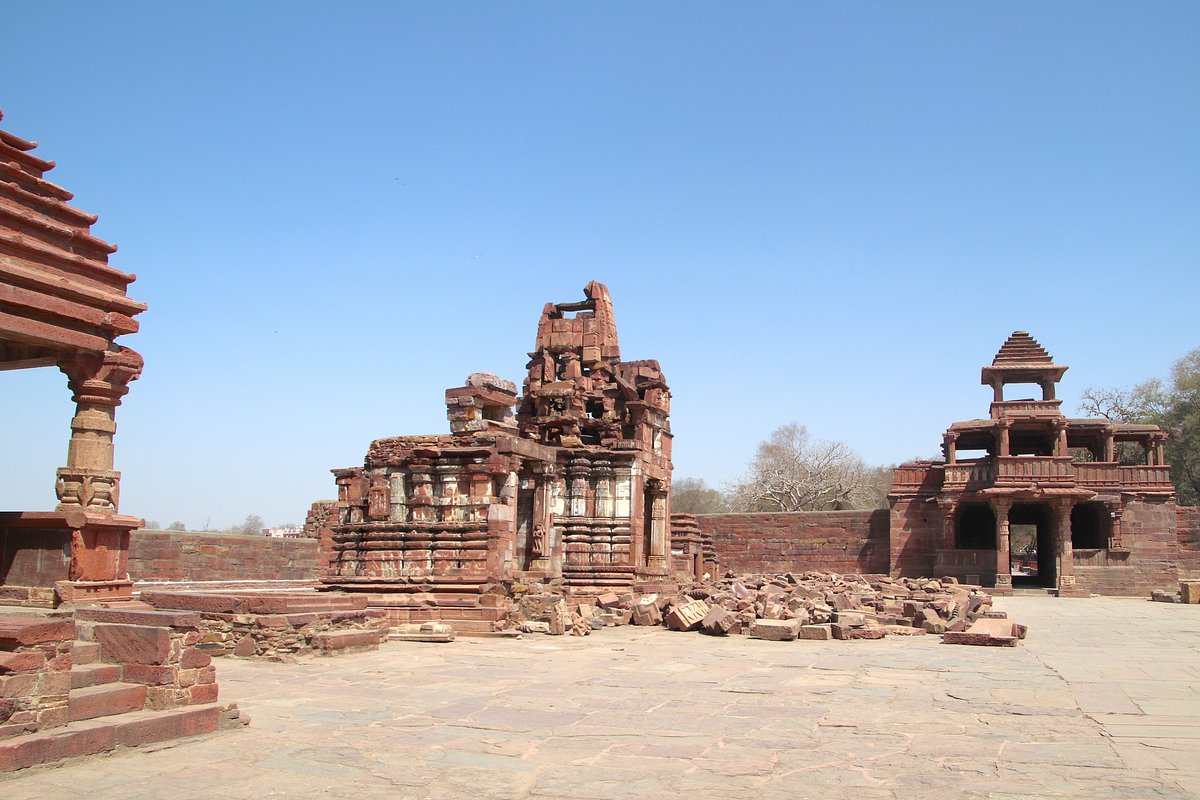Chittorgarh Menal Shiva Temple – Rajasthan

Address
Chittorgarh Menal Shiva Temple- Umar Menal, Menal, Rajasthan 312023
Diety
Shiva
Introduction
Menal Shiva Temple also known by its old name Mahanaleshvara Temple. It is popularly known as the mini-Khajuraho temple. The 11th century Mahanaleshwar temple is replete with carvings, pillars, pagodas, courtyard, sculpted panels etc symbolizing the West Indian style of stone temple architecture. The entrance has a seated stone lion along with a number of deities carved on the walls. All around the temple, Shiva and Parvati are depicted in various postures, surrounded by dancers, musicians, gods and animals. The main shrine dedicated to Mahanaleshwar is built in sand stone. Before the main temple of Mahanala is a Nandi enclosure.
Puranic Significance
This temple was built by the king then, Someshvar Chhahamana and his queen Suhavadevi of the Sakhambari dynasty during the 11th century A.D. The huge Shiva temple of stone is built in the ancient style with a carved pagoda and pillars. The pillars at the entrance of the temple have sculptures. The temple of Siva as Mahanal, was a great centre of Saivism under the rule of the Chahamanas. It is mentioned as a place of pilgrimage. It is built in the Bhumija style of architecture with stellate pancharatha ground plan and corresponding super structure carrying strings of angasikharas, surmounted by a double amalaka. The layout has an antarala in front, a sukanasa above and a rangamandapa beyond with samvarana roof. A separate nandi-mandapa exists. There is no jagati terrace and the pitha is surmounted by gajapitha and narapitha. The sculptures are of a high order. The sabhamandapa has two entrances, to the west and the north. That Menal is an ancient site is shown by the presence of twin small Saiva shrines (dated to the beginning of the eighth century) situated to the northwest of the Bhumija temple. Dedicated respectively to Ganesa and Gauri, each consists of a pancharatha sanctum and an antarala, preceded by a pair of ornate pillars. Prominence is given to the images of Lakulisa, Natesa and Ardhanarisvara in the bhadra niches of each. Only a portion of the sikhara has survived on one of these shrines. Between the two shrines was built in A.D. 1168 an identically planned Siva shrine, by Suhada devi. A hypostyle mandapa was also constructed at the site to serve as a Saiva matha. The matha employs some luxuriously embellished ghata pallava pillars which also seem to date from the beginning of the eighth century. An inscription records that the matha was built by an ascetic Bhavabrahma in A.D. 1169 during the reign of the Chahamanas king Prithviraja II. Besides, a Siva temple and Runi Rani-ka-Mahal located on the west of the main temple.
Century/Period/Age
11th century A.D.
Managed By
Archaeological Survey of India (ASI)
Nearest Bus Station
Menal
Nearest Railway Station
Mandalgarh
Nearest Airport
Udaipur/Kota









